Founder of creative thinking school: ''For some reason education is considered state’s responsibility''
Vasily Lebedev tells about the gravity of the educational process, creativity and challenges of creative professions
Winter Event Forum has recently finished in Kazan. It gathered representatives of creative professions from around the globe. Realnoe Vremya managed to talk with a speaker of the event, the director of the famous Moscow school of creative thinking IKRA. Vasily Lebedev told about whether it is possible to manage creativity, which the advertising market has become today, why a creative person needs to understand everything, and many other things to our edition in the exclusive interview.
'Nobody needs creativity for creativity''
How to learn creative thinking? How to force yourself to make something up and to come up with new ideas constantly?
Let's be frank. Nobody needs creativity for creativity. A company doesn't expect a random creativity from you. In business, advertising communications, marketing communications, a predictable result is always needed. For example, I ask you to make a magazine. I expect a ready-made solution, packed into the concept that you explain to me, show the target audience, show an example of content that will be there. As soon as you begin to solve this problem, the question arises how to package all the skills. For this, there is the management of creativity. These are the techniques and algorithms that help to make things up.
Creativity is a kind of muscle that can be trained. Like competence, it consists of four measurable attributes: originality, speed, flexibility and detailed elaboration. These skills are trained in the same way as our muscles on the treadmill. That is, the more we invent the better the skill of creativity is. But it is not enough just to train the muscle, you need to understand the sequence in which skills are better to use to get the result. We don't prevent the inspiration, we help to systematise.
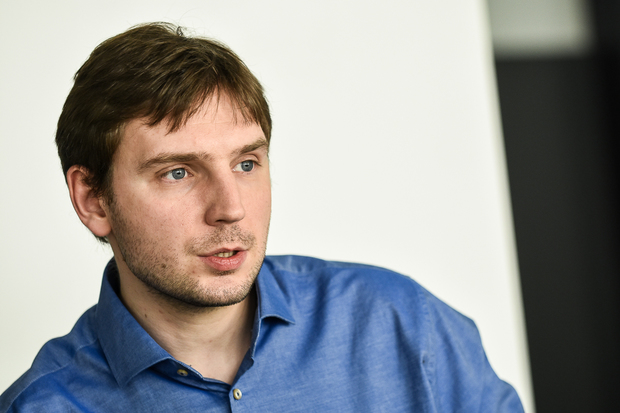
Creativity is a kind of muscle that can be trained. Like competence, it consists of four measurable attributes: originality, speed, flexibility and detailed elaboration. These skills are trained in the same way as our muscles on the treadmill. That is, the more we invent the better the skill of creativity is
How did you come up with the idea of the project IKRA?
It grew up from practical needs of the agency where we worked. Nine years ago we launched a course of digital producers. I did one course and realised that you can't teach producing if you do not teach advertising. We started teaching digital advertising. It turned out that it is impossible to teach digital advertising if you do not teach general advertising. We began to teach advertising. Again, we understood that it is impossible to teach advertising if you don't teach communications. But it was impossible until you teach thinking. So, step by step, we were discovering a new branch of programs, new methods and techniques.
It turns out, the creative process can be systematised. What algorithms are there? How do they work?
In IKRA, we examine four methodologies: design thinking, theory of inventive problem solving, lateral thinking and communication thinking. For each of the types we find their own techniques. Then we synthesise them for different tasks of customers. It is important to understand that new products, new solutions must be run systematically. To rely on short-term creativity is a normal position, but only when you do not earn money on this.
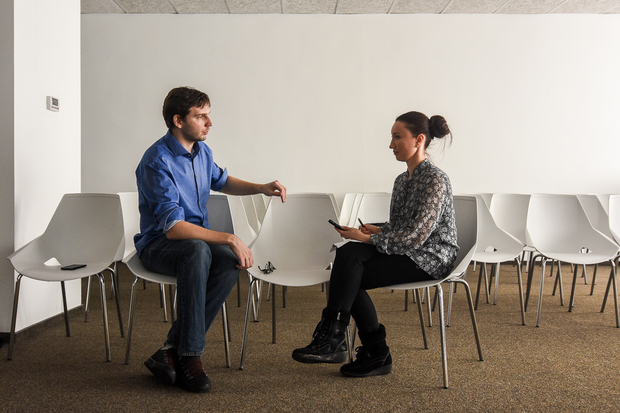
When teaching, you are faced with the need to assess your students. Can you name some criteria of creativity? A creative person — who are they?
Perhaps, it is a nonsense, but a creative person can be any. In the countless workshops I have seen different people: introvert, extrovert, angry, resentful, kind, loving, calm and violent, loud and lovely. A person himself creates the right group dynamics and the understanding of their positioning on the market. In IKRA, we hold such thing as goal-setting. Each student at the end of the course should understand who he is on the labour market. Any specialist needs to understand how others perceive him and what he would like to become. If a creative person's internal and external perceptions converge, he lives and works in harmony with himself.
Do I understand this right that creativity exists in each of us?
Absolutely. In everyone and at any age.
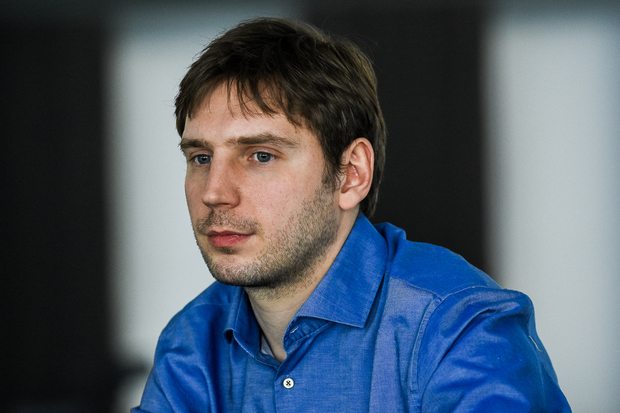
A creative person should be interested in everything: mathematics, engineering, programming, contemporary art, sociology, psychology, urban architecture, music
What challenges for the profession of a creative person exist today?
The main challenge I see now is the issue of interdisciplinarity. A creative person must be immersed in many spheres of activity. You should be interested in everything: mathematics, engineering, programming, contemporary art, sociology, psychology, urban architecture, music. New ideas, new forms of relations are born where different fields of knowledge and human behaviour merge. If you are not afraid to discover these new spheres, I assure you, the creativity will not run out until the last breath in your life.
What are the trends of the advertising market? Where is it moving, what will be the driver of growth?
Advertising is being under a severe process of merging all kinds of competences: creative approach, media advertising, PR, BTL-advertising. It is funny: media agencies do commercials, creative agencies do media advertising. Everybody does everything. This raises the question for the advertising market: what are they creating? Activities, communication strategies, new products or they help to come up with new businesses? This path of abstraction in IKRA went much faster because for us the question of what to teach is associated with the search for new approaches. We still live on inert market, which still needs to hold weddings, and need someone who would organise these weddings, we need advertising on billboards, we need someone who would place them. While this inertia exists, of course, the advertising agency will earn on what they can earn. Each region has something their own. Though experts have long been dreaming of doing more serious things.
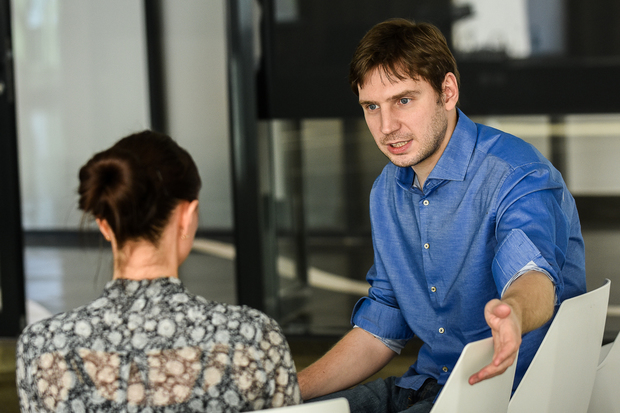
The profitability of many educational projects in Russia is far below the proper level. We still do not have a culture to pay for the education in our country. For some reason, it is considered a state's responsibility to teach, not a private problem of each individual resident
''We still do not have a culture of paid education''
What starting capital did you have when entering the market? How quickly did you reach the breakeven point?
We launched the first course with a capital of about $ 2.000. It took 2-3 years to reach self-sufficiency. In general, educational projects in our country — it is long money, long loyalty. The profitability of many educational projects in Russia is far below the proper level. We still do not have a culture to pay for the education in our country. For some reason it is considered a state's responsibility to teach, not a private problem of each individual resident.
But what about equal opportunities in this case?
Everyone has equal opportunities. The only question is that these opportunities should have some meaning and be regulated by the quality of education provided. I'll explain by a simple example. A specialist, choosing a place of work, in the first place considers the salary. If he understands that in the position of a creative director at an agency he can receive 300.000 rubles, and at the position of a teacher he gets 30.000 rubles, then you can say about motivation, a divine gift, a calling as much as you like, but lost 270.000 rubles people will remember for a long time. They will retrieve their losses at the expense of students and shift the pain on them that will affect the quality of the supplied material, either they will eventually give up and go away in the commercial sector. On the other hand, people who are not professional may get a job as a teacher. Here they are equal possibilities in bad education. If a teacher of the Russian language makes mistakes in writing, it's anti-education. You do not teach, you hurt. We need to rebuild the model. Parents should take care to ensure the good education of their child, and a good education costs money.
Okay. What about the kids whose parents can't provide them paid high quality education?
It is a personal responsibility — to learn or not. Regardless of quality, if the person himself does not want to learn, there won't be growth. Here online education can help. By the way, it stimulates a lot and puts into question the real commitment of a person to do something. According to the researches, after weeks of online learning only 20% or even 15% of students remain. Anyone who really wants to break through, they will find ways to do this: through online learning, through books, through visits of various events in the end.
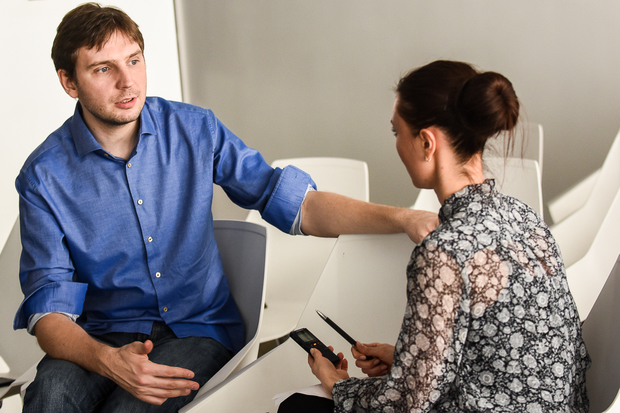
What expectations do you have coming to the Winter event forum?
I expect the interest of the participants and reflection of the conflicts that exist within companies. At best, of course, the awareness, but to start at least thinking about it.
What is your main message on this forum?
Systemic creative thinking should be everywhere, just slightly differently represented. Our task is to inspire for the search and study of those hyperlinks, creative techniques and methodologies, which we give here.
Reference
School of creative thinking IKRA. The school creates educational products and programs for the development of creative thinking. For 8 years, IKRA has trained more than 8.000 professionals and more than two dozen companies. Today IKRA is presented in three cities: Moscow, Saint-Petersburg, Minsk. At the moment, IKRA teaches Sberbank, Mail.ru, Aeroflot, Rostelecom, The Channel One, Siemens and other companies. The school uses its own methodology for the development of creative thinking based on the synthesis of basic science and four creative methods: TRIZ (theory of inventive problem solving), lateral thinking, design thinking and CRAFT (creative algorithm framework and tools).